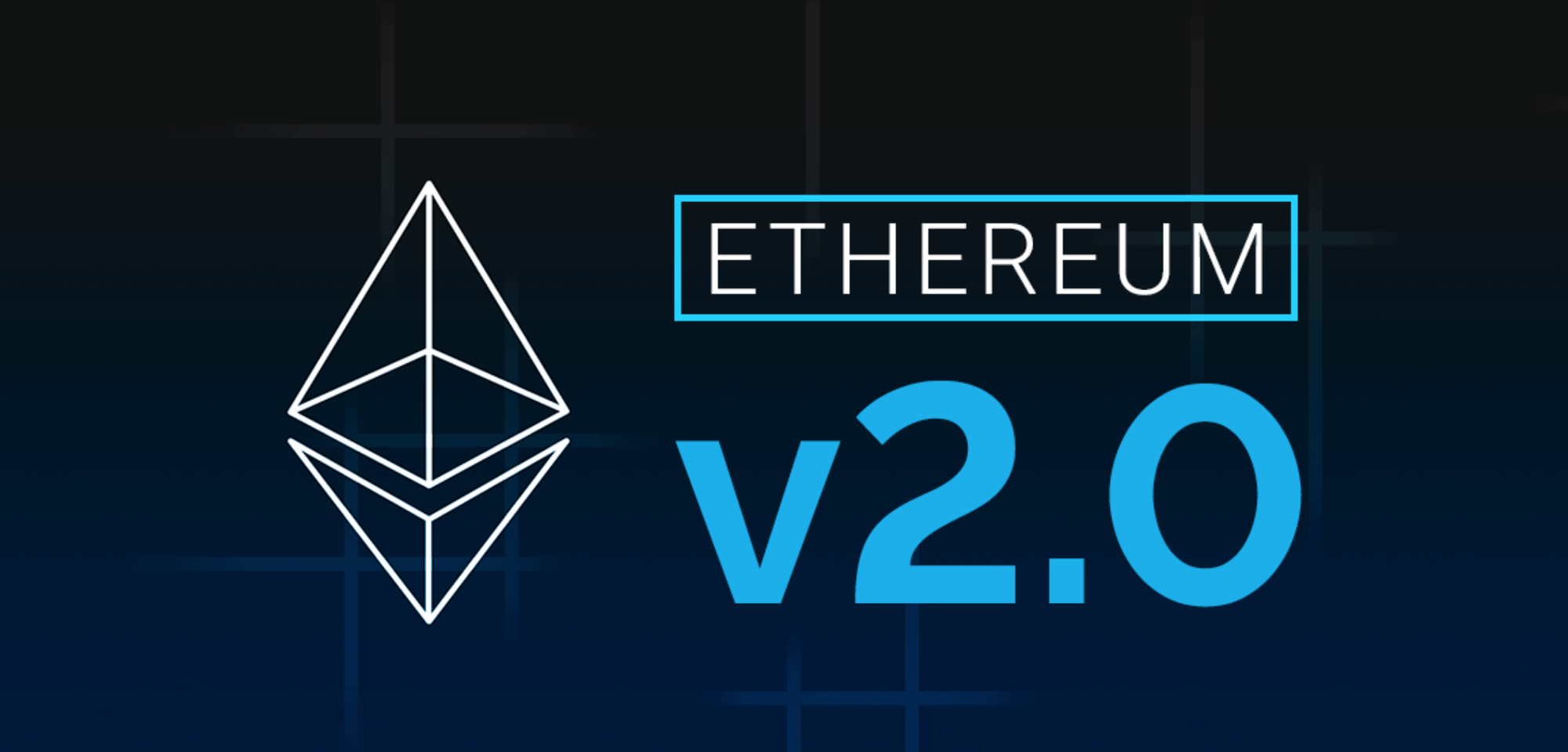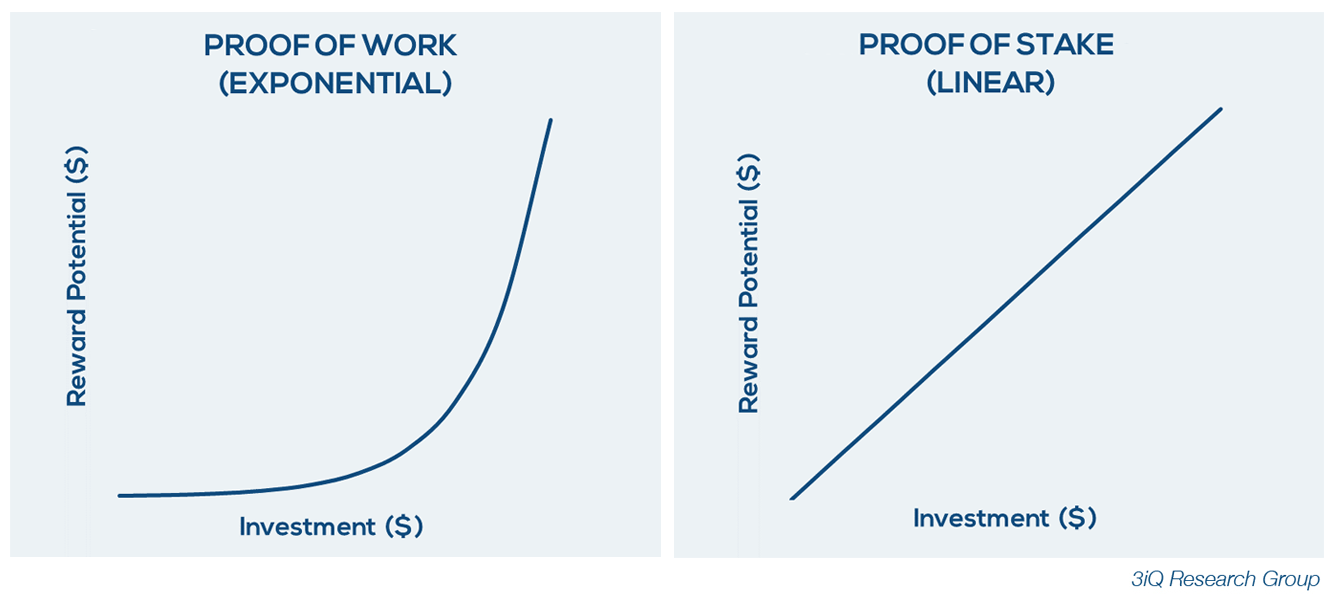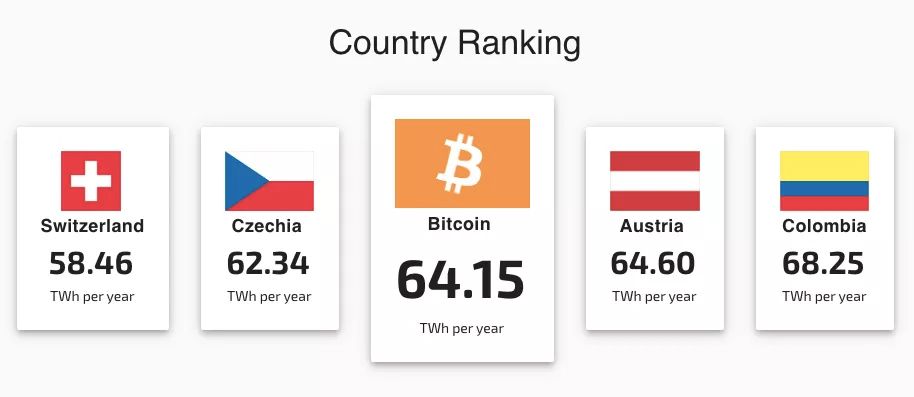Ethereum 2.0 - What is Proof of Stake?


From all that I've read online, there seems to be a fair amount of confusion involved when Ethereum community members ask about the changes scheduled for Ethereum 2.0. There are a few 'major' feature changes & functionality implementations scheduled to take place in the near-future of Ethereum.
For an overview, you can refer to these FAQs.
Work on the upcoming Ethereum 2.0 (scheduled to begin this Summer) will introduce, amongst other things, the switch from the Proof of Work (PoW) consensus mechanism to Proof of Stake (PoS).
Essentially, both PoW and PoS are alternative algorithmic solutions to the task of creating / validating Blockchain blocks. Proof of Work is the paradigm used by Cryptocurrencies such as Bitcoin, Litecoin, ZCash, and currently; Ethereum.
Let's dive on in!
Proof of Stake (PoS) is the consensus mechanism used by Cryptocurrencies such as Binance Coin, Stellar, Neo and Dash.
In Proof of Stake, blocks are not mined, but rather created or 'minted'. The participants who have a significant stake in the system get selected pseudo-randomly for minting and adding blocks onto the blockchain.
For example, (but not necessarily the exact case for Ethereum 2.0), a user who holds 1% of the total coins could mint / validate 1% of the PoS blocks. If one user was to stake 10 coins, and another user 50 coins; the user staking 50 would be 5 times more likely to be chosen as the next block validator.
For currencies using the Proof of Work paradigm, the likelihood of them mining a block is decided depending on the amount of work completed by the miner – during the CPU / GPU cycles spent checking hashes.
Instead of rewarding miners for solving complex equations, and therefore mining blocks such as in Proof of Work, Proof of Stake takes into consideration the amount of coins users have 'staked' when deciding who will mint the next block.
Proof of Work rewards the first miner to solve the cryptographic puzzle of each block. In Proof of Stake, the block validators do not receive a 'block reward', but instead collect network fees for their reward.
Blockchains implementing the PoS paradigm offer a potentially much fairer reward system than Blockchains implementing the PoW consensus mechanism.
Users of PoS-based coins gain an amount of control & reward proportional to their hardware investment. Coins based on PoW can actually gain a level of control & reward proportionally higher than their investment value.

One of the main reasons considered by the Ethereum core developers when making the decision to switch consensus mechanisms, is the increasing risk of centralisation for currencies using the PoW paradigm.
Control of blockchains implementing PoW is being delegated, more and more, away from the crypto community, and towards just a few users who own the huge hardware operations required to power the block computations. This centralised control goes directly against the decentralised values possessed by most currency providers.
"A properly functioning consensus mechanism is necessary in order to maintain the trustless, immutable, and distributed nature of any blockchain network."
The change from Proof of Work to Proof of Stake brings about an excellent benefit that not everybody considers. Since staking a coin doesn’t use any physical electricity resources, only digital ones; it reduces the toll on the environment to near-zero.
It has been suggested that running and maintaining PoW networks (like Bitcoin) is as costly as powering millions of homes in the US.
This image shows the shocking electricity usage comparison between Bitcoin, and entire countries using similar overall electricity amounts each year.

Source: https://www.cbeci.org/
As mentioned above – it's a fairly well known fact that running the CPU / GPUs required to power a Proof of Work blockchain not only costs a large amount to initially purchase the hardware, but more importantly; costs a huge amount in electricity (power) bills.
Another key distinction between PoS and PoW is that under Proof of Stake there is no new coin creation (mining). Instead; all of the coins are created in the very beginning. This means that validators must be rewarded through transaction fees, as opposed to with newly minted coins.
"The minimum stake to become a validator in Ethereum 2.0 is 32 Ether."
- Announced at Devcon 5, by Collin Myers of ConsenSys.
As I mentioned above, the paradigm shift means that the block 'minter' does not need to utilise (and therefore pay for) huge amounts of energy computing Proof of Work puzzles, and instead only needs to mine the percentage of transactions reflective of their ownership stake.
The value of Ethereum has thus far proven to provide a profitable investment return, and according to most analysts should continue to do so for 2020 onward. According to analyst Bobby Ullery; Bitcoin and Ethereum will each hold 25 per cent of the entire crypto industry, which he predicts to reach a total market cap of $4.5trn in 2020.
Proof of Stake systems in crypto is a relatively newer concept than Proof of Work systems, and still hasn’t seen the same level of adoption. As a result, PoS hasn’t been as rigorously tested as PoW systems and a few potential security risks have been identified.
However, there are some security PoS benefits from over PoW.
Penalties for attackers: Some protocols using Proof of Stake include penalties for blockchain attackers. According to this protocol, a malicious validator can lose all his stake if the network is attacked. Another penalty comes in the form of a loss in the overall value of the Cryptocurrency involved, which in turn means loss in the net worth of the attacker.
Barriers to 51% stake: Another safety feature is that it is very difficult for a single entity to purchase a 51% stake in one go. Demand for the coin is bound to push up the price, making it a very costly option.
I am personally very excited to see some of the changes that Ethereum 2.0 is scheduled to implement.
I realise that the shift from Proof of Work to Proof of Stake has been debated pretty widely on sites such as Reddit and Twitter, but I actually think the shift should prove to be a much better thing than it is a bad thing.
If you have any questions on the relationship between Status and Ethereum 2.0, please feel free to email us at support@status.im or better yet, join our chat.
Otherwise, I would personally love to hear your opinions on the pros & cons of PoS / PoW, and I encourage you send me any comments & opinions you may possess on the subject. You can do so here!




